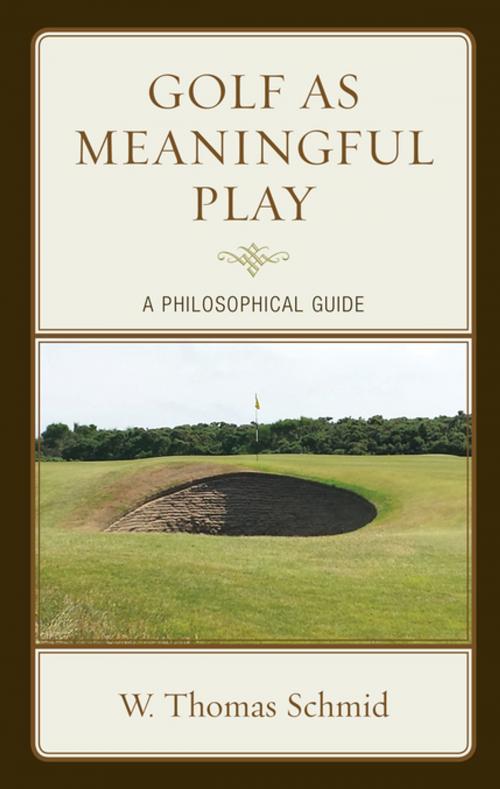Golf as Meaningful Play
A Philosophical Guide
Nonfiction, Religion & Spirituality, Philosophy, Ethics & Moral Philosophy, Mind & Body| Author: | Walter Thomas Schmid | ISBN: | 9781498550093 |
| Publisher: | Lexington Books | Publication: | May 9, 2017 |
| Imprint: | Lexington Books | Language: | English |
| Author: | Walter Thomas Schmid |
| ISBN: | 9781498550093 |
| Publisher: | Lexington Books |
| Publication: | May 9, 2017 |
| Imprint: | Lexington Books |
| Language: | English |
Golf as Meaningful Play offers a philosophical introduction to golf as a sporting practice and source of personal meaning. It is intended both for scholars interested in the philosophy of sport, and for intellectually curious golfers who seek a better understanding of the game.
This book describes the physical, emotional, mental, and ethical aspects of the game and how they influence golf instruction. It looks at golf as play, game, sport, and spectacle, discusses golf’s heroes, communities, and traditions, and analyzes the role of the virtues in golf, linking them to self-fulfillment, the ultimate good of golf experience. The book concludes with discussions of classic works of golf literary and film art, including Caddyshack, Missing Links, Tin Cup, and Golf in the Kingdom, which celebrate its follies and glories.
The fact that golf can serve as a playful laboratory to test oneself is a deep part of the game’s attraction. Golf, if played well, conveys an experience which unites happiness, excellence, and interpersonal flourishing. This book strives to give an account of golf both as it is and as it ought to be—how golfers may improve their games and even themselves, in meaningful play.
Golf as Meaningful Play offers a philosophical introduction to golf as a sporting practice and source of personal meaning. It is intended both for scholars interested in the philosophy of sport, and for intellectually curious golfers who seek a better understanding of the game.
This book describes the physical, emotional, mental, and ethical aspects of the game and how they influence golf instruction. It looks at golf as play, game, sport, and spectacle, discusses golf’s heroes, communities, and traditions, and analyzes the role of the virtues in golf, linking them to self-fulfillment, the ultimate good of golf experience. The book concludes with discussions of classic works of golf literary and film art, including Caddyshack, Missing Links, Tin Cup, and Golf in the Kingdom, which celebrate its follies and glories.
The fact that golf can serve as a playful laboratory to test oneself is a deep part of the game’s attraction. Golf, if played well, conveys an experience which unites happiness, excellence, and interpersonal flourishing. This book strives to give an account of golf both as it is and as it ought to be—how golfers may improve their games and even themselves, in meaningful play.















